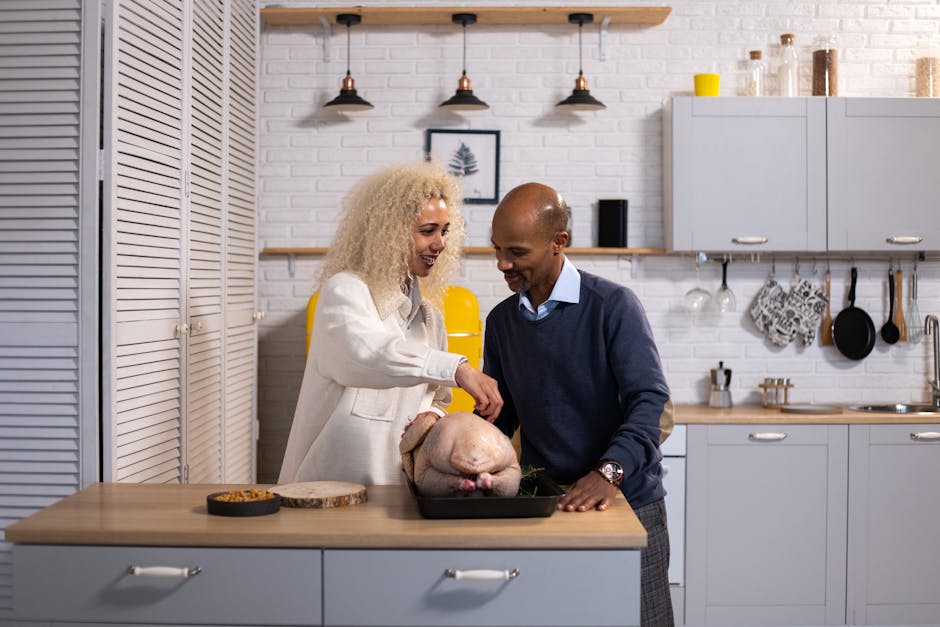Eating out is convenient, but it can really add up fast. If you’re looking to save money without sacrificing flavor, you’re in the right place.
Cutting back on restaurant meals doesn’t mean giving up on good food or fun times. It’s about finding smart, easy ways to enjoy cooking at home.
Once you start, you’ll see how much money stays in your pocket and how much joy you can find in your own kitchen. Plus, your health might thank you too!
This list will guide you through simple strategies and habits to help you stop eating out and boost your food savings effortlessly.
Ready to transform your food budget and your meals? Let’s dive into some practical, easy-to-implement tips that anyone can follow.
You’ll be surprised how small changes add up to big savings—and tastier dinners at home.
Planning and Preparation Hacks
One of the biggest reasons people eat out is because they feel unprepared at home. Planning your meals ahead can save you time, stress, and money. With a solid plan, you’ll know exactly what to buy and cook, reducing impulse buys and last-minute takeout orders.
Meal prep is also a lifesaver. Spending a little time chopping veggies, cooking grains, or portioning meals ahead of time makes it much easier to eat at home during busy days.
Here are some planning and prep tips to get you started on a smoother path to home-cooked meals:
1. Create a weekly meal plan – Decide on your meals for the entire week before grocery shopping. This helps you buy only what you need and reduces food waste, making it less tempting to grab takeout when you’re unsure what to cook.
2. Batch cook staple ingredients – Prepare large portions of rice, beans, or roasted veggies at once. Store them in the fridge or freezer for quick additions to meals throughout the week, saving time and effort on busy days.
3. Make a detailed grocery list – Based on your meal plan, write down every ingredient you need. Sticking to this list helps avoid impulse buys that can increase your budget and clutter your kitchen.
4. Use a slow cooker or instant pot – These appliances can turn out delicious meals with little hands-on time. Just set it in the morning and come home to a ready-to-eat dinner, reducing the temptation to eat out after a long day.
5. Prep ingredients right after shopping – Wash, chop, and portion ingredients as soon as you get home. This small step makes cooking later faster and less overwhelming, helping you stick to your home meal plan.
With your planning and prep streamlined, you’ll find it easier to resist the lure of dining out. Next, let’s explore how smart shopping can make a huge difference.
Smart Grocery Shopping Strategies
Shopping smarter means spending less money on groceries and having the right ingredients on hand to cook at home. It’s all about being intentional with where, when, and how you shop.
When you become savvy about sales, store brands, and timing, your grocery bill shrinks without sacrificing quality. Plus, you’ll avoid those last-minute convenience store runs that pile up.
Try these easy shopping hacks to keep your food budget in check:
6. Shop sales and stock up – Keep an eye on weekly grocery ads and buy non-perishables or freezable items when they’re on sale. This lets you build a budget-friendly pantry that supports cooking at home.
7. Buy store brands – Generic or store-brand products often taste just as good as name brands but cost less. Swapping to store brands on staples like pasta, canned goods, or dairy can add up to big savings.
8. Shop with cash only – Using cash instead of cards forces you to stick to your budget. When the cash runs out, so does the shopping, stopping those extra impulse buys that inflate your bill.
9. Avoid shopping when hungry – Shopping on an empty stomach leads to impulse buys and craving-driven purchases, which often means more processed snacks and ready-made meals that tempt you to eat out later.
10. Choose local markets or discount stores – Farmers markets, ethnic grocery stores, or discount grocers often have fresh, affordable produce and staples. Exploring these options can give you great deals while supporting local vendors.
With your groceries sorted smartly, cooking at home becomes easier and more cost-effective. Next, let’s look at ways to make home cooking simpler and more enjoyable.
Making Home Cooking Fun and Easy
Cooking at home doesn’t have to be complicated or time-consuming. Finding joy and ease in the kitchen can make you less likely to reach for takeout menus.
Experimenting with simple recipes and kitchen shortcuts can turn cooking into a relaxing, rewarding part of your day. Plus, you get the satisfaction of a homemade meal tailored just for you.
Here are some ideas to keep your cooking game strong and enjoyable:
11. Start with easy recipes – Choose simple dishes with minimal ingredients and steps. Mastering a few basic meals builds your confidence and makes cooking less intimidating.
12. Use one-pot or sheet-pan meals – These recipes require less cleanup and less prep time, making dinner quicker to put together—perfect for busy weeknights when takeout feels tempting.
13. Get creative with leftovers – Transform extra food into new meals like soups, stir-fries, or wraps. This reduces waste and saves money, plus it keeps your meals exciting.
14. Use kitchen gadgets to save time – Tools like food processors, mandolins, or air fryers speed up prep and cooking, making home meals less of a chore and more of a pleasure.
15. Cook with family or friends – Turning cooking into a social activity makes it more fun and less of a solo task. Plus, sharing the workload speeds up meal prep and creates lasting memories.
When cooking feels easy and fun, you’ll naturally reach for home-cooked meals instead of takeout. Now, let’s explore how to use leftovers and pantry staples to your advantage.
Maximizing Leftovers and Pantry Staples
Leftovers and pantry staples are your secret weapons against eating out. Using what you already have reduces waste, saves money, and makes meal prep a breeze.
Being creative with staples and leftovers means you can whip up delicious, budget-friendly meals almost anytime without a trip to the store or restaurant.
Check out these tips to make the most of your kitchen inventory:
16. Keep a well-stocked pantry – Essentials like canned beans, pasta, rice, spices, and frozen vegetables give you a solid base for quick meals. Having these on hand prevents last-minute takeout runs.
17. Repurpose leftovers creatively – Turn yesterday’s roast into today’s tacos or pasta sauce. Changing the format keeps meals interesting and stretches your food budget further.
18. Freeze portions for later – When you cook in bulk, freeze individual portions for quick meals later. This helps you avoid ordering out when you’re too tired to cook fresh.
19. Label and organize your fridge and freezer – Knowing what you have and when it expires helps you use ingredients before they go bad. This reduces waste and keeps your meals fresh and budget-friendly.
20. Create “theme nights” using pantry items – For example, taco Tuesdays or pasta Fridays built around pantry staples make meal planning easier and more fun, while helping you use what you already own.
With a strong foundation of leftovers and pantry staples, your home cooking options expand without extra cost. Let’s finish with some lifestyle habits that support eating at home.
Lifestyle Habits to Reduce Eating Out
Changing your habits and mindset around eating out is key to long-term savings. It’s about creating routines and environments that naturally encourage home-cooked meals.
By adopting a few lifestyle shifts, you’ll find it easier to resist the convenience of takeout and enjoy the benefits of cooking at home.
Here are some habits to help you stick to your budget and cooking goals:
21. Set a monthly dining-out budget – Limit how much you spend on eating out each month to keep your overall spending in check. Knowing you have a set amount makes dining out a special treat rather than a default option.
22. Find go-to quick meals – Have a few favorite fast recipes ready for busy days so you’re less tempted by takeout. This reduces stress and keeps your food budget intact.
23. Practice mindful eating – Focus on enjoying your meals without distractions. When you appreciate your home-cooked food, you’re less likely to crave restaurant meals.
24. Keep healthy snacks available – Having fruits, nuts, or yogurt ready to grab helps avoid quick stops for convenience food that can lead to eating out later.
25. Celebrate home-cooked meals – Treat yourself to small rewards for sticking to your cooking goals, like new kitchen tools or a special ingredient. Positive reinforcement makes the habit stick.
By weaving these habits into your daily life, eating out will become less frequent and your savings will grow naturally.
Cutting back on eating out doesn’t have to be hard or boring. A few small changes can make a big difference in your food budget and your overall well-being.
Planning, smart shopping, fun cooking, using leftovers, and lifestyle habits all work together to help you enjoy delicious meals at home without the stress.
Try implementing a few of these tips and watch your savings grow—you might even start looking forward to cooking more than ordering out!



